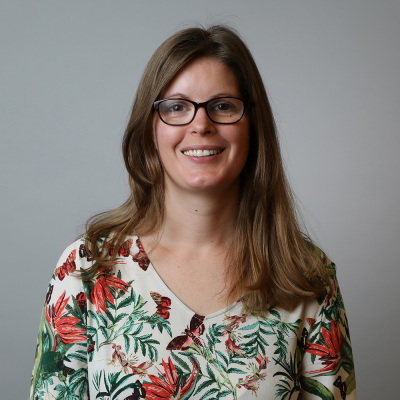Supporting innovations and their adoption: learning from the FREED project
21 August 2023

How the NHS can better support innovations and their adoption at scale is a critical question. With the current challenges the health service is facing, harnessing proven innovations and creating conditions where these can more easily spread is vitally important to transforming services and ensuring their sustainability.
Eating disorder services is an area where these challenges are being acutely felt. Gaining access to evidence-based, high-quality care as soon as possible can enable better recovery and long-term outcomes for children and young people. Yet the latest children’s commissioner for England analysis showed that recent increases in demand – particularly through the COVID-19 pandemic – have meant that children with eating disorders are experiencing long waits for services despite recommended targets for early access. Adopting best practice in this area will be critical in tackling these challenges.
Improving access to eating disorder services through innovation
FREED (First episode Rapid Early intervention for Eating Disorders) is an innovation working to improve access to eating disorder services developed by King’s College London and South London and Maudsley NHS Foundation Trust. Originally funded through a Health Foundation innovation award in 2014, FREED specifically seeks to enable faster access to evidence-based treatments through rapid screening and assessment protocol, evidence-based guided self-help interventions and psychological therapies for patients and carers and an implementation toolkit for staff and services. Over the past decade, the team behind FREED has received further support from the Health Foundation to test proof of concept and generate evidence of scalability through its adoption across multiple eating disorder services. More recently, FREED has been supported by the Academic Health Science Network (ASHN Network) as part of its national spread programme. As of this year, FREED has been taken up by all 54 eligible mental health trusts in England. To date, nearly 4,000 patients have been seen through FREED pathways, and this figure is rising.
What factors facilitate successful innovation spread?
Our report The spread challenge highlighted how the successful adoption of innovations can be much harder in practice than typically assumed and requires dedicated focus and resources. The importance of the support the FREED team has been able to draw on from the Health Foundation and AHSN Network is testament to that. But it isn’t enough by itself, and plenty of innovations fail to spread despite receiving support. So, what else matters?
First, the experience of FREED shows the compelling need for a strong evidence base. FREED demonstrated this through evaluation at its first site. This evaluation showed that young people with eating disorders who use the FREED pathway are seen earlier, spend less time with untreated eating disorder symptoms and show better post-treatment outcomes (across both eating disorder and general psychological symptoms) compared with those who use the standard service model. This evidence base has provided a strong case for other providers to take up the innovation, and faster access to treatment has been a mobilising core mission.
Second, the people involved in the FREED innovation have been critical to its success. Not only has the initiative been led by an energetic and committed group of individuals from inception through to national spread, but this core team has nurtured a thriving network of adopters involved in the take-up of FREED.
Conversations with those involved reveal that peer support has been a strong element of this network, with learning on FREED adoption shared between teams whose services are taking it up. Teams have implemented FREED based on its core elements but have adapted it to their own contexts. They have then fed back their learning to others in the network, allowing for creativity and agility. For example, when eating disorder services had to quickly pivot to virtual access during COVID-19, the FREED network enabled rapid sharing of intelligence on how to make this happen. The AHSN Network national rollout also made a critical contribution to this community building. FREED champions were appointed in each mental health trust, and communities of practice were developed, including buddy groups.
The attention FREED has paid to developing and enabling this peer support speaks to a learning highlighted in The spread challenge. When adopters from the Health Foundation’s spread programmes were asked what would have made the biggest difference in supporting their work, the most popular option was opportunities to share learning with fellow adopters.
At an event earlier this year to celebrate its progress, it was clear that the FREED community knows there is still work to be done embedding, optimising and sustaining the model in their localities. Given the scale of challenges in eating disorder services, it is hoped that maintaining momentum here can help begin reducing waits for treatment. The core team is working hard to ensure the network remains active so that adopter sites continue sharing and learning from each other.
The future of innovation
The experience of FREED offers lessons for the NHS about how innovators can be more systematically supported to spread their work at scale. This also remains a strong focus at the Health Foundation. We continue to invest in this area, for example focusing on the right local system conditions for innovation uptake in our Adopting Innovation programme and supporting new innovations that enable more care to be delivered at home and in the community through our Tech for Better Care programme.
While there’s still much further to go in reducing waits for those with eating disorders, the uptake of FREED shows that, with the right approach, it is possible to spread innovation and improvement across the NHS.
Further reading
Work with us
We look for talented and passionate individuals as everyone at the Health Foundation has an important role to play.
View current vacanciesThe Q community
Q is an initiative connecting people with improvement expertise across the UK.
Find out more

